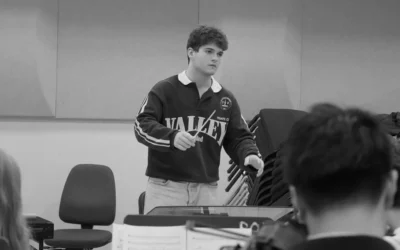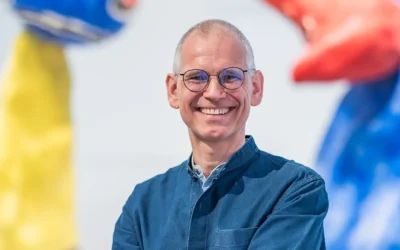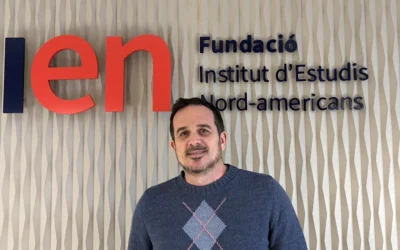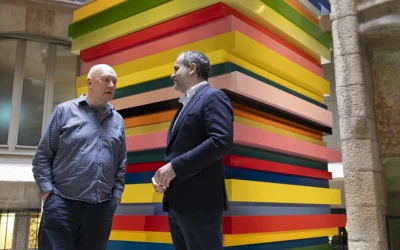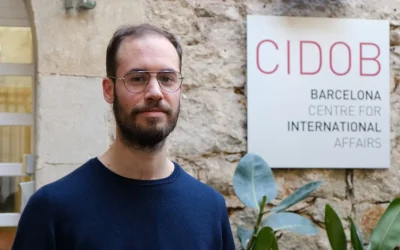Bruce Jentleson: “We Need an Alternative to Trump Foreign Policy, Not Just Opposition”

Bruce Jentleson is one of the United States’ most respected voices in international relations, blending academic rigor with hands-on policy experience. The William Preston Few Distinguished Professor of Public Policy and Professor of Political Science at Duke University, Jentleson has served in several U.S. administrations, including as a senior advisor at the State Department during the Clinton and Obama years. This Summer as IEN Visiting Professor at Institute Barcelona d’Estudis Internacionals (IBEI), he brings a sharp, historically grounded perspective to the challenges of contemporary U.S. foreign policy—from the rise of nationalism to climate change, the decline of multilateral institutions, and the uncertainty of global power shifts.
In this conversation, he explores how the U.S. has transformed its global role, why Donald Trump is both a cause and a symptom of that transformation, and what kind of leadership is needed to navigate an increasingly multipolar world.
Is U.S. global leadership in decline, or is it just evolving?
Trump’s return to power marked a dramatic change, not only in policy substance but in diplomatic style. What was once considered strategic leadership is now being replaced with what I call “assertive nationalism”: using American power to impose U.S. interests, often even against our own allies. That said, these trends predate Trump. He’s both a cause and an effect.
How would you define the core purpose of U.S. foreign policy under Trump?
 At its core, Trump’s foreign policy has been about using U.S. power to get what he sees as our narrow national interest. It’s transactional and personalized. While some concerns, like European defense spending, are legitimate, his approach alienates allies and ignores global cooperation. His version of “America First” often works against both American values and interests.
At its core, Trump’s foreign policy has been about using U.S. power to get what he sees as our narrow national interest. It’s transactional and personalized. While some concerns, like European defense spending, are legitimate, his approach alienates allies and ignores global cooperation. His version of “America First” often works against both American values and interests.
Is there a country or figure today that could take the lead globally?
I don’t think we’re looking at a world of a single leader or hegemon anymore. We’re in a 21st-century version of multipolarity, where countries don’t want to choose between the U.S. and China—they want ties with both. Groups like BRICS show this clearly. The challenge now is not who leads alone, but how to build systems of cooperation among major and emerging powers. Leadership today has to mean shared responsibility, not dominance.
Could China and the U.S. ever be allies?
No, I don’t see them becoming allies, but I also don’t believe conflict is inevitable. Many countries want balanced relations and don’t appreciate being told to pick sides. Both China and the U.S. have overreached at times. The key is finding a balance where both nations pursue their interests without provoking unnecessary tensions. Cooperation—especially on economic and environmental issues—will be more beneficial than confrontation.
What’s your assessment of current U.S. policy towards Iran?
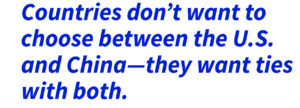
The U.S. had a nuclear nonproliferation agreement with Iran negotiated in 2015 which, while not perfect, was on balance working. It was supported even by China and Russia, which is rare. Trump pulled out of it in 2018, largely because it was Obama’s deal, not because it was failing. That move damaged American credibility and set Iran on a more dangerous path. Biden tried to repair it, but a combination of his team’s negotiating mistakes and Iran’s reluctance to find common ground and continued development of its nuclear capabilities blocked a new agreement.
What’s left to do?
Diplomatic solutions are still possible, but with the lack of trust and current leadership dynamics, it’s extremely difficult. As to Iranian politics and society, while there is widespread opposition to the current government –women, students, many others— Sustainable, political change must come from within, not through bombs or an externally engineered regime change.
Do you think diplomacy still holds solutions in today’s conflicts?
Yes, but diplomacy requires patience, expertise, and trust; qualities in short supply today. The Cold War ended peacefully, which few predicted, and peace between Egypt and Israel happened when no one expected it. But current leaders often want fast wins or public spectacle, like Trump’s “Truth Social” and other social media diplomacy. China too while claiming to be pro-multilateralism contradicts that with policies such as in the South China Sea. So too Russia’s war of aggression against Ukraine. That’s not how conflict resolution works. So, yes, diplomacy can work out, but it has major limits under current approaches.
What was it like to be at the Middle East negotiating table in the 1990s?

It was one of the most profound experiences of my career. I was part of the U.S. team during the 1990s Oslo peace process, working under Ambassador Sam Lewis. I remember September 1993, holding the letters where Palestine Liberation Organization chairman Yasir Arafat recognized Israel, and Israeli Prime Minister Yitzhak Rabin recognized the PLO as the legitimate representative of the Palestinian people — a sense at the time of true turning points. There was real hope back then. Sadly, mistakes and worse were made on all sides, and that window closed. I still believe in a two-state solution, but it’s much much harder now than ever. Peace takes courage, and while cost of not achieving it keeps rising for people on both sides.
What is the biggest challenge facing U.S. foreign policy today?
It’s not just about undoing Trump; it’s about rethinking American leadership for this century. The old internationalism—both conservative and progressive versions—no longer resonates with large parts of the public. And as I’ve written on, while having contributed much to global peace and security it also has had its own failings. We need a new approach that rebuilds domestic support, puts forward new more effective strategies, and also finds common ground with other global actors. Climate change, for example, is not only a planetary issue, it’s a security and economic one too. But the U.S. can’t tackle it alone or from a position of dominance.
How do you see climate change shaping future geopolitics?
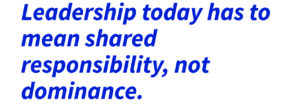
It will be one of the biggest geopolitical disruptors. It’s already fueling migration, water conflicts, and resource competition. Some regions may become unlivable. This doesn’t always cause war, but it certainly creates instability. I call it Environmental Mass Destruction (EMD). Its effects are slower but more widespread. Climate change is already causing more global deaths than terrorism. So yes, it’s central to future foreign policy, and not just future but today.
What’s next on your research agenda?
I’m writing a book with the working title Beyond Anti-Trump: Towards an Alternative US Foreign Policy, asking what comes after “America First”. It’s easy to oppose Trump, but harder to build a coherent alternative. Over the past two years, since the October 7 Hamas terrorist attacks and the Israeli war in Gaza, I’ve also been leading a Middle East initiative at Duke, helping students engage with these issues in ways consistent with our role as institutions of higher education. In addition to speakers and other forums this has included projects with Israeli and Palestinian NGOs for online tutoring for displaced children, health care interventions, and other hands-on initiatives. We’re trying to build spaces for dialogue, learning, and trust. This generation of students will have to shape a better path forward, and I want to help prepare them.
